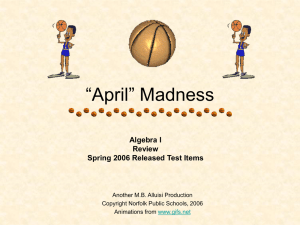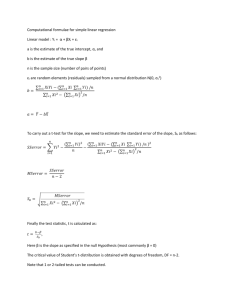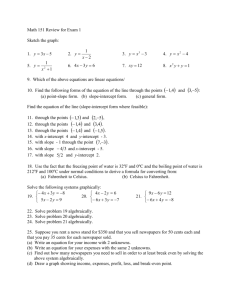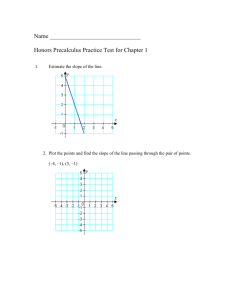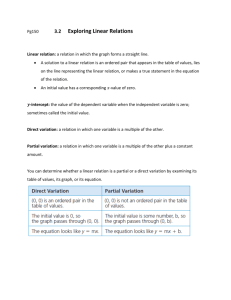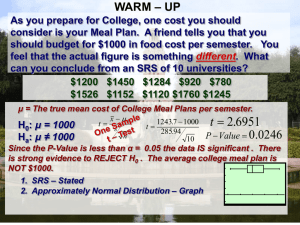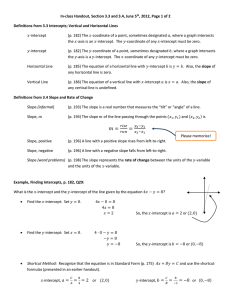Notes-Characteristics & Apps of Linear Functions
advertisement
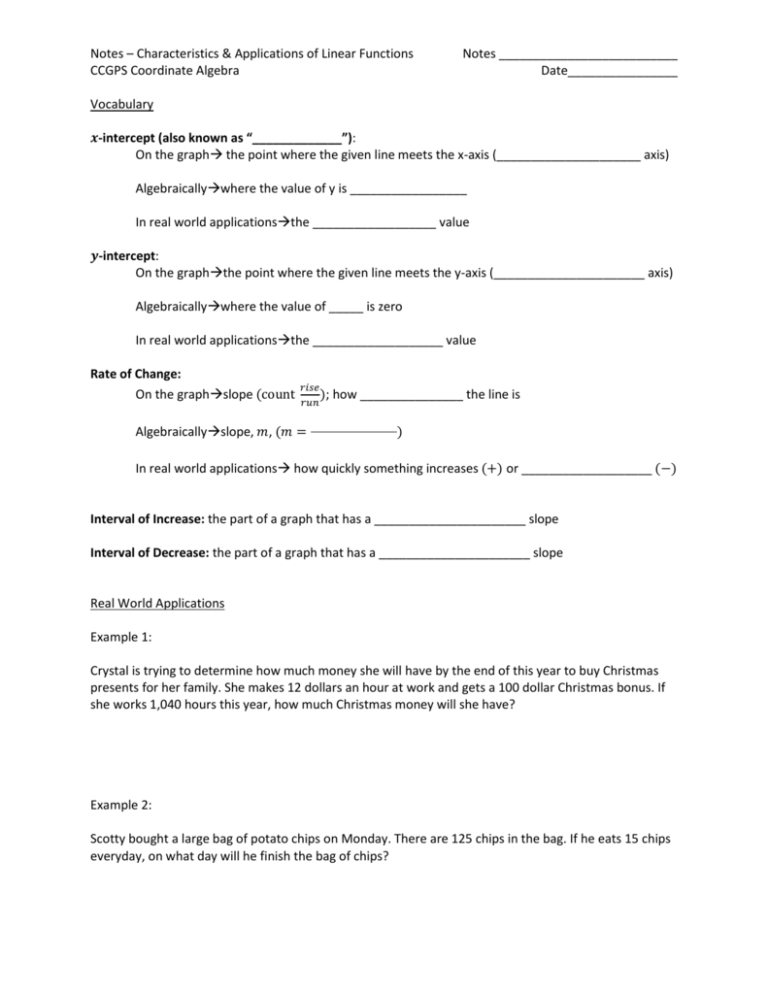
Notes – Characteristics & Applications of Linear Functions CCGPS Coordinate Algebra Notes __________________________ Date________________ Vocabulary -intercept (also known as “_____________”): On the graph the point where the given line meets the x-axis (_____________________ axis) Algebraicallywhere the value of y is _________________ In real world applicationsthe __________________ value -intercept: On the graphthe point where the given line meets the y-axis (______________________ axis) Algebraicallywhere the value of _____ is zero In real world applicationsthe ___________________ value Rate of Change: On the graphslope Algebraicallyslope, ; how _______________ the line is , In real world applications how quickly something increases or ___________________ Interval of Increase: the part of a graph that has a ______________________ slope Interval of Decrease: the part of a graph that has a ______________________ slope Real World Applications Example 1: Crystal is trying to determine how much money she will have by the end of this year to buy Christmas presents for her family. She makes 12 dollars an hour at work and gets a 100 dollar Christmas bonus. If she works 1,040 hours this year, how much Christmas money will she have? Example 2: Scotty bought a large bag of potato chips on Monday. There are 125 chips in the bag. If he eats 15 chips everyday, on what day will he finish the bag of chips? Finding Zeros of a Linear Function Given a linear function, substitute (_________________) zero for . Why??? Because the value of on the x-axis is ZERO! Remember, if we are standing on the -axis how many units have we moved vertically? None, so . Determining Whether a Given Value is a Zero Given a linear function and a value, to determine whether that value is a zero of the function: 1. Substitute ___________________________________________ for in the given function. 2. Then solve for . If If , then the given value IS a zero. is NOT ZERO, then the given value is _________ a zero. Example 1: Find the zero of the linear function . Example 2: You can run a 100 meter race at an average rate of 4.8 meters per second. The distance, , you have left to run after seconds is given by the function . Find the zero of the function to the nearest tenth. Explain what the zero means in this situation. Example 3: Determine whether six is a zero of the function .

